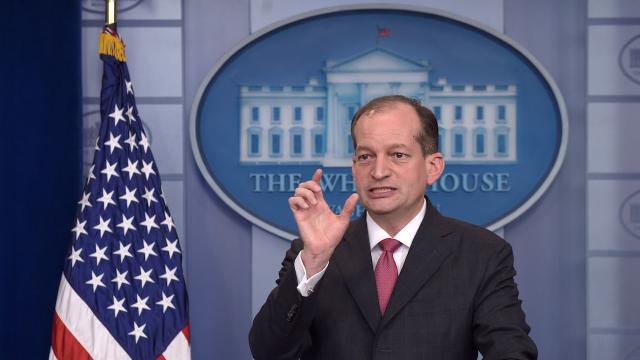Fake comments submitted to a US federal agency after a notice of proposed rulemaking is something that, even just a few years ago, no one would have really given two shits about. Even typing “notice of proposed rulemaking” just now made me incredibly sleepy.
But after 24 million comments were filed in response to the FCC’s Restoring Internet Freedom Order (that’s the one that killed net neutrality), Americans from all walks of life suddenly began paying attention to erstwhile-borrring bureaucratic procedures that, were it not for the net neutrality fight’s energizing effect, would have been like listening to Ben Bernanke discuss the Great Depression’s effect on credit intermediation after swallowing a bottle of Ambien.
So here we are: Instead of playing on their phones, high school students were watching an FCC open meeting in class, of their own volition, and groaning loudly (the way they do) every time someone used a dummy phrase like “heavy-handed” or “light-touch regulation,” which is sadly every five to 10 seconds.
But it’s not just rowdy internet freedom fighters getting drowned out by swarms of fake comments aimed at convincing federal regulators the public feels one way when, in reality, the complete opposite is true. As The Wall Street Journal reported Wednesday, fake comments criticised a proposed Labour Department rule that would “require investment advisors handling retirement accounts to act in the best interest of clients.”
Among a group of 50 people who allegedly filed comments on the rule and were contacted by the Journal, 40 per cent said they didn’t actual write the comment that was filed using their name, address and phone number. One of the comments, supposedly filed by a Pennsylvania man who later agreed to go on the record and say he never wrote it, read: “I do not need, do not want and object to any federal interference in my retirement planning.”
It’s mostly known by now that while federal agencies have to accept public comments, they don’t actually have to consider any of what they say. Nevertheless, making a “materially false, fictitious, or fraudulent” statement to a federal agency (like, say, using someone else’s name without their consent) is a felony. This apparently happened millions of times during the FCC’s rulemaking process. But the agency’s Trump-appointed chairman, Ajit Pai, has declined to aid any law enforcement investigation into the matter — partly, we assume, because the lead investigator, New York Attorney General Eric Schneiderman, is turning out to be one of the administration’s worst nightmares.
Whereas the FCC established a rule that its IT team wouldn’t do anything to block fake comments — mostly out of concern that it would be accused of censoring comments that didn’t align with its political agenda — the Labour Department told the Journal that its happy to delete any comments reported to be fraudulent.
In addition to the Labour Department and the FCC, the Journal also reported that it has identified fake comments plaguing dockets at three other federal agencies.
While it’s easy to comprehend why someone would seek to tamper with the FCC’s comment system at the height of the net neutrality debate — its high number of comments serving as an indicator of exigent and widespread public concern — one has to wonder what kind of sick bastard would try to game a rulemaking process that affects how senior citizens receive retirement advice.
Is there no decency left?
